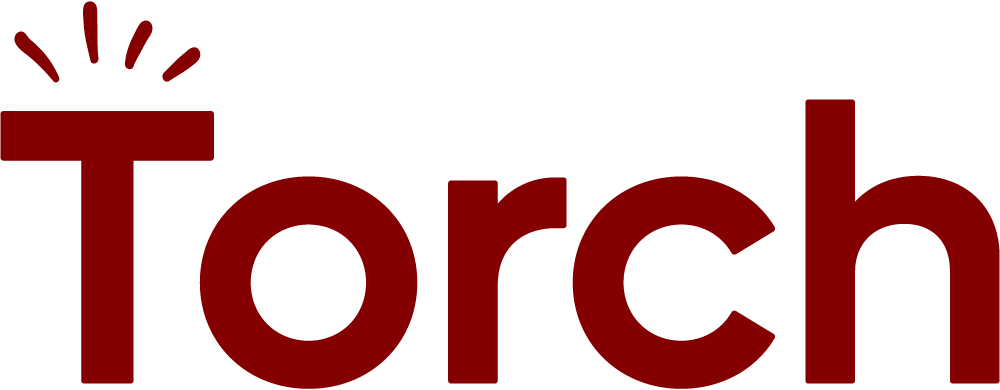Today, executive coaching is everywhere. But is it effective? In this article, we pull back the curtain on coaching: the good, the bad, and the questions you should be asking.
Think back to the early days of your career. There were plenty of opportunities to learn, right? Maybe it was by trial and error (who doesn’t have that one specific memory of making a huge mistake at their first “real” job that they vowed never to repeat again?). Or maybe you were lucky enough to find a mentor who imparted sage advice and answered every seemingly silly question you had. For most of us, there was plenty of grace and guidance available as we learned to move through the world of work.
But as professionals climb the corporate ladder, that feeling becomes more rare. Employees become managers and managers become executives, and while the challenges don’t dwindle, the number of people who can empathize and help solve the unique problems that emerge at each stage does.
This is where executive coaching comes in: a one-to-one engagement in which an executive enlists a coach to help them look inward, address specific challenges, and ultimately become a better leader. But does it work?
Today, executive coaching is a practice that’s as ubiquitous as it is secretive. In 2023, the International Coaching Federation observed a 21% increase in global coaching revenue over a four-year period that began in 2015, putting the total in 2019 at $2.849 billion—a number that’s only grown since. But what actually goes on in executive coaching sessions? These engagements are highly personalized, often protected under NDA, and largely occur behind closed doors.
So today, let’s shed some light on executive coaching. At Torch, we believe that it can be transformative—not just for leaders, but also for their teams. But it’s only as effective with a highly skilled coach, and an invested participant.
In this article, we’ll explore what good (and bad) executive coaching looks like and how to assess whether a coach is a good fit for you.
What good coaching looks like
While every coaching experience looks different, effective coaching tends to have a few key commonalities.
- It’s provided by a certified coachPerhaps this one should go without saying, but we’ll say it anyway: Please do not hire an executive coach who isn’t certified. Accreditation has become more widespread over the years—the International Coaching Federation has accredited over 25,000 coaches—but this number is dwarfed by the estimated five million plus ‘coaches’ that are operating worldwide.Certified coaches have the requisite education and experience (a minimum of 300 hours!) to guide their coachees, and because coaching is an investment, you want to be able to say it was worth it.
- It’s forward-lookingAn effective leader guides their organization towards the future. Similarly, good executive coaching keeps a leader’s gaze on the horizon. To the untrained eye, executive coaching may look an awful lot like psychotherapy rebranded for the workplace. But as “The Clear Coach” Dr. Rakish Rana writes in Forbes, there are distinct differences: Psychotherapy tends to look backward at the participant’s past, while great executive coaching looks forward.
- It encourages introspectionWhile executive coaching is not the same as psychotherapy, it does require the participant to go inward. As business writer and executive coach Erika Andersen—who has coached execs at Amazon, Spotify, CBS, and more—writes in Forbes, “Accurate self-awareness in leaders is highly correlated with organizational effectiveness and profitability, and employees prefer to follow leaders who see themselves clearly.” By creating a dynamic wherein the leader feels safe to address their own insecurities and self-image without judgment, effective coaches foster an environment where the leader can be truly introspective—which in turn empowers them to build trusting relationships with their teams.
- It’s tied to performanceHow does a leader know that they’re getting any better at leading? Their progress must be tied to measurable results. Good executive coaching sets out quantitative and qualitative goals from the outset and revisits those goals to assess coaching effectiveness.These goals can be quantitative—such as increased revenue or reduced turnover—or qualitative. Qualitative goals to work towards include improved relationships with direct reports or overall increases in commitment to the organization. Regular employee surveys can help capture data that isn’t tied to quantitative outcomes.
- It engages with peer feedbackWhile coaching is largely one to one, it cannot exist in a vacuum. A good coach will spend some time at the beginning of the engagement understanding the results of a 360 assessment and/or conducting interviews with the leader’s peers to learn more about how they experience the leader. From there, the coach should break the feedback out into themes, identify any growth areas specifically linked to peer feedback, and work with the leader to develop a coaching plan that addresses these areas.
- It uses experiential learningCoaching is useless if it only solves abstract problems. Learning is stickiest when it’s put into practice quickly. Executive coaches must ground their guidance in real scenarios that the leader is currently facing or could plausibly face. The coach needs to focus where the leader is struggling, whether that means focusing on managing people empathetically, rallying their team to hit specific targets, or practicing having difficult conversations.Let’s use that last item as an example. Simply learning about how to have difficult conversations doesn’t provide nearly the same skill-building that occurs when someone 1) creates a plan based on a real need, 2) practices it live at work with a direct report, and 3) digests it in a safe environment, reflecting on successes and opportunities to improve in the future.
Three coaching pitfalls to be aware of
While many factors contribute to a great coaching experience, they don’t guarantee it. Here are some potential pitfalls to be aware of.
- It’s not actually executive coachingToo often, “coaches” offer leadership training under the misnomer of executive coaching. Traditional leadership training is distinct from executive coaching in that it is typically short-term, one-size-fits-all, and skill-focused. There are aspects of skill-building in executive coaching, but overall, executive coaching is much more holistic, focusing on relationships, impact, and self-image as well.If you’re going into leadership training expecting the results of executive coaching, you’ll be disappointed. Studies have shown that organizations that offer training alone experience a 22% increase in productivity, but when combined with coaching, that figure rises to 88%.
- It’s too tacticalAs we mentioned earlier, it’s important to tie executive coaching to performance. However, coaching that only focuses on metrics and results often misses the point entirely. If the executive is failing to hit their performance metrics, could something more be going on? It may be they’re struggling with impostor syndrome, or they’re not sure how to have honest, productive conversations with their direct reports. Results are only half the story. Digging into interpersonal dynamics and personal beliefs can help fill in the blanks.
- It’s wasted on the wrong peopleAs executive coach and writer Roberta Matuson points out, “You can’t coach people who don’t want to be coached,” and too often, these are the very people who are assigned an executive coach. It’s a frustrating paradox, but a tough one to solve. Ultimately, transformation requires a willing participant, so it’s up to the executive whether they want to put that investment to good use or not. (But if you’re an executive reading this and you’ve been offered a coach, take the opportunity. You’ll probably benefit from it.)
How to assess whether a coach is a good fit for you
Now that we’ve offered a general overview of what makes a great—and not-so-great—executive coaching experience, you may be wondering: How do I know if a coach is right for me?
Selecting an executive coach is a highly personal process, but there are some questions you can ask yourself to assess each coach and decide whether they’ll be a good match for you:
- Is the coach certified?
- Does the coach come with a proven track record?
- Is this coach a good personality match for me?
- Does this coach have substantial management experience themselves?
- Is this coach’s methodology aligned with our organization’s strategy?
- What is this coach’s proposed process and does it align with how I like to operate day to day?
While the answers to some of these questions should remain relatively static (yes, your coach should have the proper accreditation, and yes, their methodology should align with your organization’s strategy), others will vary depending on what you want from your coaching experience.
And while this list of questions can be a good guide, don’t discount the value of your own gut feeling. Successful relationships of any kind need chemistry, and if a coach is giving you a less-than-stellar vibe, it’s less likely that you’ll be motivated to show up and do the hard work of transforming together.
To take some of the labor out of finding and selecting a coach for yourself, executives, or your broader team, consider using a people development platform like Torch. These platforms use a series of dimensions with the support of an algorithm to match highly-qualified coaches with participants.
Executive coaching works when you find the right coach
While none of us may be able to replicate that early career experience of being cared for by a great mentor, the right executive coach can help you recapture some of that magic. When you find one who can empathize with your challenges, help you understand yourself better, and ultimately guide you to be a better leader, that’s a singular—and transformative—experience all its own.
If you’re ready to see how coaching can help everyone in your organization thrive, learn more about Torch’s coaching services and request a personalized demo here.

